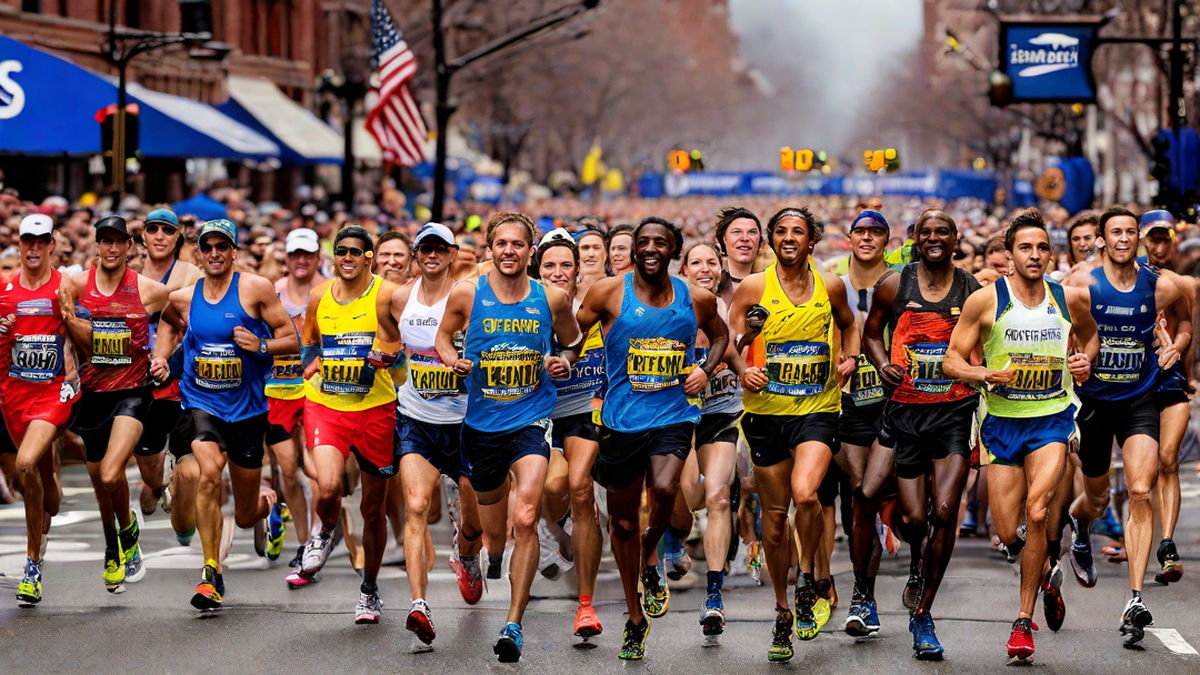For anyone who loves running or follows the world of marathons, the Boston Marathon is an event that’s hard to miss. Known for its rich history and challenging course, the Boston Marathon attracts elite runners from all over the world. One of the most intriguing aspects of this prestigious race is the winning time. In this article, I will delve into the details of the winning time for the Boston Marathon and provide some personal commentary along the way.
A Brief Overview
The Boston Marathon is an annual race held in Boston, Massachusetts. It is one of the oldest and most well-known marathons in the world, with its inaugural race taking place in 1897. The course spans 26.2 miles and consists of hilly terrain, making it a true test of endurance for all participants.
The Winning Time: An Elite Achievement
Each year, the Boston Marathon crowns a male and female champion based on their finishing time. Winning the Boston Marathon is considered a remarkable feat in the running community, as it requires not only exceptional talent but also strategic pacing and mental fortitude.
In recent years, the winning times have been incredibly fast. In 2019, the male champion, Lawrence Cherono of Kenya, crossed the finish line with a time of 2 hours, 7 minutes, and 57 seconds. The female champion, Worknesh Degefa from Ethiopia, finished in 2 hours, 23 minutes, and 31 seconds. These blazing fast times demonstrate the incredible skill and dedication of the elite runners who compete in the Boston Marathon.
The Factors that Influence Winning Time
Several factors come into play when determining the winning time for the Boston Marathon. The first and most obvious factor is the level of competition. The marathon attracts some of the fastest runners in the world, each vying for the top spot. The presence of top-notch competitors pushes the pace and raises the bar for what is considered a winning time.
Another critical factor is the weather conditions on race day. The Boston Marathon takes place in April, which means runners have to contend with unpredictable weather. Harsh winds, rain, or extreme heat can significantly impact the winning time. Conversely, ideal weather conditions, such as cool temperatures and a slight tailwind, can facilitate faster finishing times.
The Evolution of Winning Times
Throughout the history of the Boston Marathon, winning times have evolved and become faster. This can be attributed to advancements in training methods, nutrition, and running gear. Additionally, as more athletes focus on marathons as their primary event, the competition has intensified, pushing runners to strive for even faster times.
It’s important to note that while the winning time has seen significant improvements, the average finishing time for participants varies widely. The Boston Marathon caters to runners of all levels, from amateurs to seasoned professionals. It’s an event that celebrates the spirit of running and showcases the determination and perseverance of individuals from all walks of life.
My Personal Perspective
As a passionate runner myself, the winning time for the Boston Marathon is always a source of inspiration. Witnessing the raw speed and endurance displayed by the elite runners motivates me to push my own limits and strive for personal bests.
The Boston Marathon is not just a race; it’s a symbol of the power of human potential. The winning time represents the culmination of months or even years of hard work, sacrifice, and dedication. It serves as a reminder that with the right mindset and training, any goal is within reach.
In Conclusion
The winning time for the Boston Marathon is a reflection of the incredible talent and determination of elite runners. It signifies years of preparation and embodies the spirit of the marathon. Whether you’re a seasoned runner or a casual observer, the winning time is a reminder that anything is possible with hard work and a relentless pursuit of excellence.

